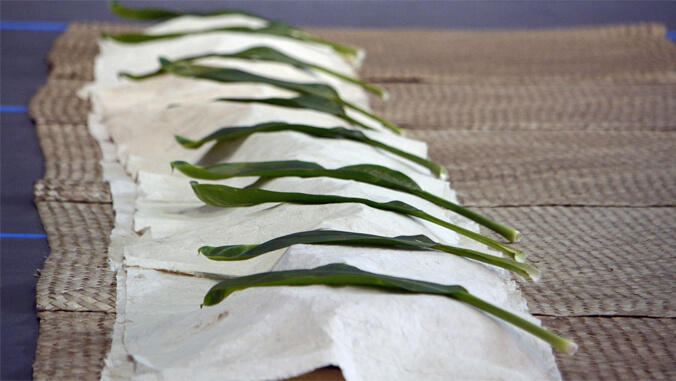
Thirteen University of Hawaiʻi Native Hawaiian education programs are set to receive more than $9 million in federal funding from the large American Rescue Plan Act (ARPA). ARPA was enacted to stimulate recovery from the economic and health impacts of the COVID-19 pandemic. These grants are part of more than $28 million in federal funding awarded to 35 Native Hawaiian education programs across the state.
“This new federal funding will ensure that Native Hawaiian educational programs have the resources they need to support students in time for the upcoming school year,” said Sen. Brian Schatz in a news release announcing the funding. “As chairman of the Senate Committee on Indian Affairs, I will keep fighting for more resources for the Native Hawaiian community.”
The UH grants are for a wide range of programs that include early childhood education, family engagement, Hawaiian language education, creation of STEM pathways, and curriculum and professional development.
“This incredible opportunity to advance Native Hawaiian education with our education partners comes as welcome news during this difficult and challenging period for students and teachers across our islands,” said UH President David Lassner. “We extend our deepest aloha and gratitude to Senator Schatz for his unwavering efforts to promote the success of Native Hawaiians across the UH system and beyond.”
The grants were awarded to programs at UH Mānoa, UH Hilo, UH West Oʻahu and Honolulu, Windward and Kauaʻi Community Colleges.
UH programs awarded funds
UH Mānoa
Kuhikuhina Kaulike ($439,772) will provide professional development to improve the abilities of educators in schools with high concentrations of Hawaiian students to meet cultural and learning needs.
Nā Hokua Project-COVID Relief Initiative ($919,011) will support at-risk youth to overcome learning losses and meet other pandemic-induced needs to achieve college success. This will be accomplished by enhancing and expanding our successful NHP model that supports youth within an inclusive, culturally responsive framework that promotes self-determination and acquisition of the academic, socio-emotional and life skills needed for college success and subsequent quality employment in science, technology, engineering, math and computer science (STEM) fields of study.
Project Hōkūlani Hui ($769,642) will create hui (groups) at local Native Hawaiian communities on the islands of Oʻahu, Hawaiʻi, Molokaʻi, Maui and Kauaʻi for Hōkūlani scholars (i.e., Native Hawaiian high school students having potential in STEM) and provide differentiated Hōkūlani Program (i.e. a year-long culture, strength and work-based program consisting of STEM hands on learning; mentoring; college transition support; paid internship and internship project; and monthly ʻohana gatherings and tailored support at community centers).
Kākau mea nui 2.0 ($847,245) will address the achievement gaps faced by Native Hawaiian students through implementation of a teacher focused, job-embedded professional development program.
The Hawaiʻi Positive Engagement Project’s ($836,477) mission is to innovatively address Native Hawaiian parent, educator and student needs that have been intensified by the COVID-19 pandemic.
Project Hoʻokuʻi V: Kūlia i ka Nuʻu ($691,446) will support all Native Hawaiian students—including students with disabilities, at risk, gifted and talented, and to increase enrollment of Native Hawaiian students in postsecondary degree and certificate programs leading to employment.
ʻAha Lamakū ʻOiaʻiʻo Hoʻoikaika Aʻe or ALO-HA ($401,342) promotes Native Hawaiian student success by employing an evidence-based multi tiered system of support framed around strategically organized services relative to five goals aligned with five primary practice categories predictive of high-school success: (focused planning; student development; interagency collaboration; family engagement; and program structure).
Hilinehu: Educational Leadership Advancement initiative ($853,095) will increase the number and quality of Native Hawaiian graduate level kumu (teachers) and administrators retained within the HIDOE and UH System.
UH West Oʻahu
He Paepae Aloha: A Foundation of Caring ($941,393) provides Native Hawaiian education activities for Native Hawaiian students through the development of academic and vocational curricula that incorporate: Native Hawaiian traditions and culture, in-service professional development activities, and learning activities that include financial literacy, leadership development and community stewardship.
UH Hilo
Hawaiʻi i ke Alo: Forward Facing Hawaiʻi ($1,017,306) aims to increase access to Hawaiian language medium (HLM) digital media assets that foster Hawaiian language proficiency by increasing a highly trained HLM digital media workforce; and increasing Hawaiian language normalization in STEM fields, and will engage and support an estimated 80 high school and college students, 60 teachers and 10 STEM partners.
Honolulu Community College
The Poʻi Nā Nalu Native Hawaiian CTE & STEM Pathways Project ($457,184) will increase Native Hawaiians’ exposure to career and technical education (CTE) and STEM; increase enrollment, retention, and completion of Native Hawaiians in the 23 CTE and STEM programs at Honolulu Community College; increase Native Hawaiians’ career-readiness skills to prepare for employment in CTE and STEM; and strengthen Native Hawaiian students’ cultural identity to support academic and professional aspirations and achievements.
Windward Community College
Kūkulu ʻOhana: Building the Family ($589,040) will grow the capacity of Hawaiian language and culture in families in order to overcome barriers to higher education for Native Hawaiian student parents. Ke Kula Kamaliʻi ʻo Hānaiaulu, the childcare center at Windward Community College, will leverage student parent engagement in workshops to grow family language capacity and provide access to and success at college for the mākua.
Kauaʻi Community College
MAUŌ: The Perpetuation of Well-Being ($585,616) will increase Native Hawaiian success in post-secondary education by ensuring that Native Hawaiian students have access to support systems while transitioning from school or work to college; increase funding to support scholarships (tuition, books, fees) and post-COVID support for Native Hawaiian students who are enrolled in Kauaʻi Community College’s Waiʻaleʻale and Kīpaipai programs; provide comprehensive student wrap-around services to Native Hawaiian students who are enrolled in Kauaʻi CC’s Waiʻaleʻale and Kīpaipai programs; and develop and implement a resource development model to support long-term sustainability for the Waiʻaleʻale and Kīpaipai programs beyond the term of this grant.

